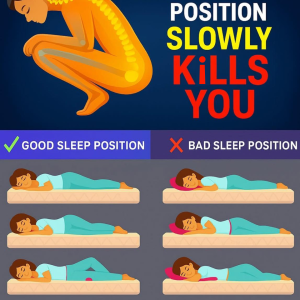
Diabetes rarely arrives with dramatic symptoms. Instead, it builds quietly, especially at night, when your body should be at rest.
Type 2 diabetes—the most common form—develops when blood sugar remains high, straining vital organs. Over time, it can harm the kidneys, nerves, and eyes, according to the American Diabetes Association.
You may feel fine during the day, but nighttime often tells the truth. Spotting these early warning signs can be the difference between prevention and long-term medication.
The Seven Nighttime Clues You Shouldn’t Ignore

1. Waking Up Thirsty or Frequently Urinating
High blood sugar draws water from your cells, causing dehydration and frequent urination. If you often wake up parched or need multiple bathroom trips at night, this could be your body’s first signal that glucose is out of balance.
2. Night Sweats or Hot Flashes
Excess glucose can interfere with the body’s temperature regulation, leading to sweating even in cool rooms. While often mistaken for stress or menopause, persistent nighttime sweating deserves attention.
3. Leg Cramps or Tingling
High blood sugar irritates nerves, leading to tingling, numbness, or painful cramps—especially in the legs. These symptoms may be among the earliest signs of diabetic neuropathy.
4. Restless Sleep or Insomnia
When blood sugar levels swing during the night, sleep hormones become disrupted. You might feel wired but exhausted, finding it hard to fall or stay asleep.
5. Intense Hunger at Night
Sudden cravings, especially for sweets, can indicate that your glucose regulation is off. High blood sugar confuses hunger signals, tricking your body into thinking it needs more fuel.
6. Blurry Vision at Night
Temporary swelling of the eye’s lens from excess glucose can blur your vision—often more noticeable when reading before bed. If this happens repeatedly, it’s worth a checkup.
7. Extreme Fatigue Despite Sleep
Waking up exhausted, no matter how long you sleep, is a major red flag. When glucose can’t enter cells efficiently, your body lacks energy—even after a full night’s rest.
Eight Practical Tips to Stabilize Blood Sugar Naturally

You don’t need to eliminate carbs or overhaul your diet overnight. Small, consistent changes can make a measurable difference. Studies in Diabetes Care show that simple lifestyle adjustments can lower A1C levels by 1–2%. Here’s how to start:
1. Pair Carbs with Fiber
Combine carbohydrates with fiber-rich foods like vegetables or legumes. Fiber slows sugar absorption, preventing sharp spikes after meals.
2. Sip Vinegar Before Dinner
One tablespoon of apple cider vinegar in water before meals can reduce post-meal glucose levels by about 20%. Always dilute it to protect your teeth.
3. Take a 10-Minute Evening Walk
A short walk after dinner helps your body use glucose for energy and reduces nighttime spikes.
4. Balance Your Dinner Plate
Fill half your plate with vegetables, one quarter with protein, and one quarter with whole grains. This ratio supports steady glucose and keeps you satisfied longer.
5. Hydrate with Water Instead of Sugary Drinks
Staying hydrated aids insulin function. Swap soda or juice for water with lemon or cucumber slices.
6. Add Cinnamon to Meals
Half a teaspoon of cinnamon daily may enhance insulin sensitivity. Try it on oatmeal, yogurt, or even savory dishes.
7. Keep a Consistent Bedtime
Going to bed at the same time each night helps regulate cortisol, a stress hormone that affects blood sugar levels.
8. Eat a Small, Protein-Rich Snack Before Bed
A handful of nuts, Greek yogurt, or a boiled egg can help maintain stable glucose overnight and prevent midnight hunger.
Quick Reference Guide
| Sign | What to Notice | Action to Take |
|---|---|---|
| Thirst & Urination | Waking frequently to drink or urinate | Track frequency, consult your doctor |
| Night Sweats | Clammy skin, unexplained warmth | Note timing and patterns |
| Leg Cramps | Pain or tingling in legs at night | Stretch, monitor persistence |
| Restless Sleep | Difficulty falling or staying asleep | Log patterns, seek evaluation |
| Night Hunger | Cravings after dinner | Check meal balance |
| Blurry Vision | Fuzzy focus, especially at night | Get an eye and glucose check |
| Fatigue | Persistent tiredness | Request blood sugar testing |
Disclaimer: This article is for informational purposes only and does not replace professional medical advice. Always consult your healthcare provider before making changes to your diet, exercise, or medication routine.




